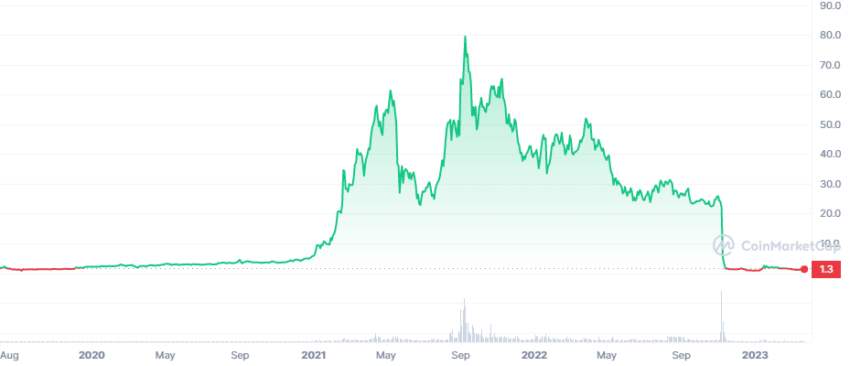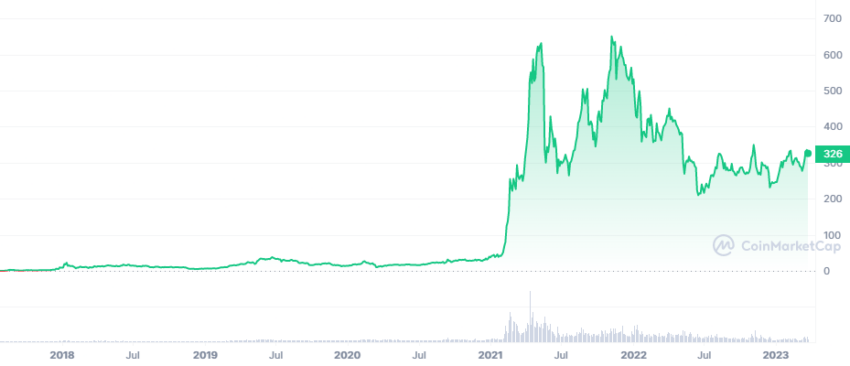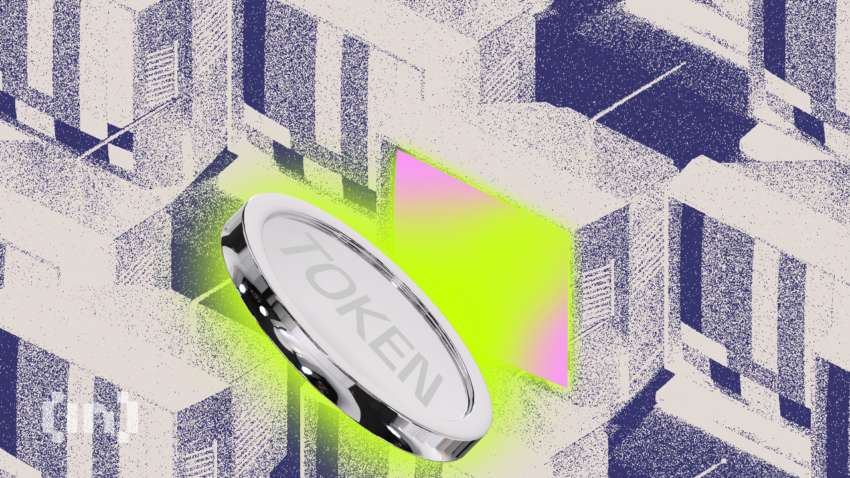Larry Fink, the CEO of BlackRock, has sent mixed messages about the potential of tokenization. His thoughts have stirred debate in the financial world, raising questions about whether tokenization accurately represents the future of finance.
As we further explore, it becomes crucial to weigh both the potential advantages and obstacles connected to tokenization.
Fink’s Take on Tokenization
In recent interviews, Fink has claimed that the U.S. should embrace innovation and adopt tokenization to revolutionize the financial sector. He sees this as an opportunity to improve efficiency, reduce costs, and enhance security in transactions.
Tokenization enables the conversion of physical assets or rights into digital tokens on a blockchain. Thus, making them easily transferable and divisible.
Larry Fink believes that this process could pave the way for a more inclusive and democratized financial system. And open doors for smaller investors and businesses.
He wrote in a letter penned to investors on March 17, 2023,
“At BlackRock we continue to explore the digital assets ecosystem, especially areas most relevant to our clients such as permissioned blockchains and tokenization of stocks and bonds.”
Doubts and Contradictions
Fink’s recent enthusiasm for tokenization seems at odds with his assessment of FTX, a cryptocurrency exchange in which BlackRock invested $24 million. Apparently, Fink blames the exchange’s downfall on its decision to create its own token.

The apparent contradiction in Fink’s views raises questions about his overall stance on tokenization. While he acknowledges the potential of this technology, his comments on FTX suggest that he may also recognize its potential pitfalls and challenges.
Lessons from FTX Failure
FTX’s decision to launch its own token raised several concerns, including potential conflicts of interest, regulatory hurdles, and the risk of diluting investor value. While tokenization offers benefits, it also presents challenges that must be carefully navigated.
For instance, the introduction of a proprietary token may lead to complications in the relationship between the company and its users. Tokens can act as an incentive to promote the platform’s growth, but they can also create conflicts of interest, particularly if the company prioritizes its token’s value over the platform’s functionality or user experience.
Moreover, regulatory agencies around the world are increasingly taking a hard look at token offerings. Companies that issue tokens without considering the regulatory implications may face legal consequences and damage their reputation in the process.
The Binance Question
Mr.Fink’s comments have also raised eyebrows concerning the future of Binance, another prominent cryptocurrency exchange. If he believes that the FTX failure resulted from the introduction of a native token, does this signal trouble for Binance, which operates using its BNB token?

Despite remaining a leading crypto exchange, Binance faces regulatory scrutiny. Authorities have questioned its operations, prompting business model adaptations to comply with local regulations.
The Binance case demonstrates that even successful tokenization projects can face challenges. And companies must continuously adapt to the changing regulatory landscape to remain viable.
Tokenization Analysis
Given Mr. Fink’s ambiguous statements, it is difficult to pin down his exact position on tokenization. Nonetheless, there are several takeaways from this debate that warrant further discussion.
- Tokenization has potential: The idea of tokenizing assets and streamlining financial transactions holds promise. Mr. Fink’s enthusiasm for innovation suggests that there is value in exploring this avenue.
- Not all tokens are created equal: The failure of FTX highlights the importance of distinguishing between well-designed tokens and those that create unnecessary risks. Not all tokenization projects will succeed, and careful scrutiny is essential.
- Regulation and compliance matter: Tokenization can introduce new regulatory challenges, as evidenced by FTX’s experience and Binance’s ongoing struggles. Companies must navigate these complexities to ensure the long-term success of their tokenization endeavors. This may involve working closely with regulators to develop clear guidelines and maintain transparency in their operations.
- The jury is still out: Fink’s contradictory views on tokenization underscore the fact that this is a rapidly evolving space, and the verdict on its future is far from settled. As the technology matures, more industry leaders, regulators, and investors will be better equipped to evaluate long-term prospects.
Striking the Right Balance
As tokenization continues to gain traction, it is essential for companies to strike a delicate balance between embracing innovation and mitigating risks. This may involve developing comprehensive risk management strategies, ensuring regulatory compliance, and fostering a culture of transparency and accountability.
For instance, companies could work with regulatory authorities to develop clear guidelines for tokenization projects, helping to create a more stable environment for growth. Additionally, businesses should be prepared to adapt their tokenization strategies in response to evolving market conditions, technological advancements, and regulatory changes.
The Role of Industry Leaders
As the CEO of the world’s largest asset management firm, Larry Fink’s views on tokenization carry significant weight. Yet, his conflicting statements serve as a reminder that even industry leaders are grappling with the implications of this emerging technology.
As tokenization progresses, key figures like Fink must promote constructive dialogue and develop best practices. Collaborating, industry leaders can enable tokenization to revolutionize finance while minimizing risks.
Navigating the Tokenization Landscape
Larry Fink’s contradictory remarks on tokenization highlight the fact that the financial world is still trying to understand the implications of this technology. Tokenization undoubtedly offers tremendous potential, but its ultimate success will hinge on companies’ ability to tackle the challenges that arise.
As the discussion continues, industry leaders and regulators must find a delicate balance between promoting innovation and addressing risks to ensure tokenization can genuinely transform the financial landscape.
Disclaimer
Following the Trust Project guidelines, this feature article presents opinions and perspectives from industry experts or individuals. BeInCrypto is dedicated to transparent reporting, but the views expressed in this article do not necessarily reflect those of BeInCrypto or its staff. Readers should verify information independently and consult with a professional before making decisions based on this content. Please note that our Terms and Conditions, Privacy Policy, and Disclaimers have been updated.


